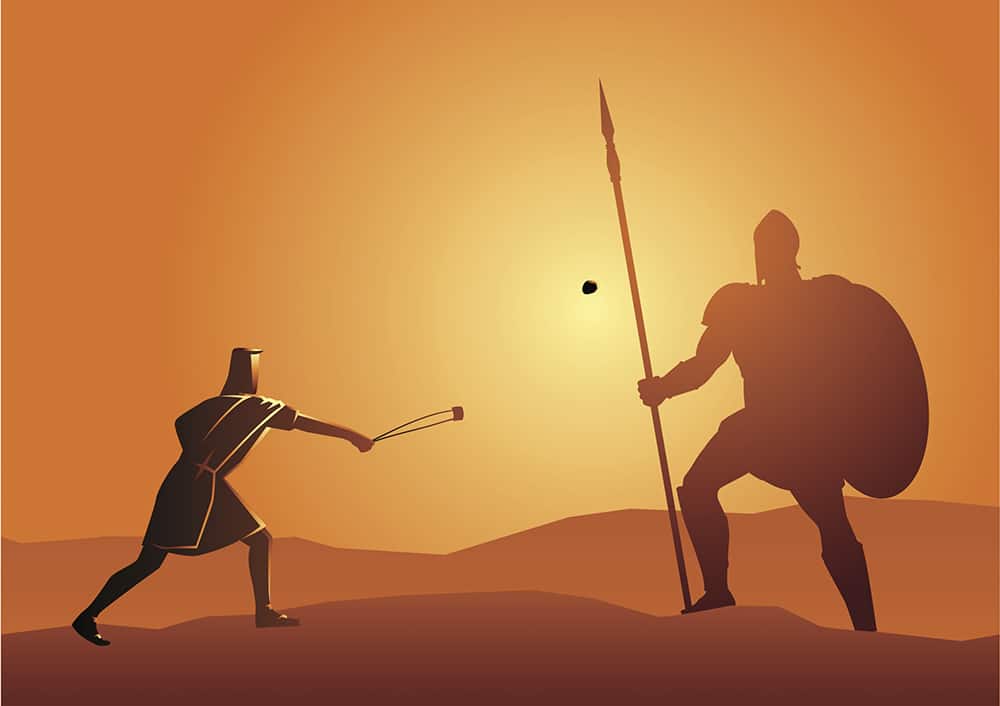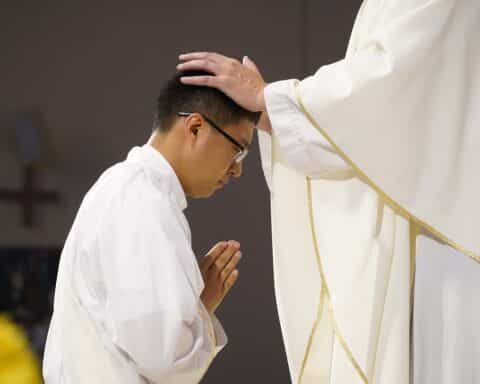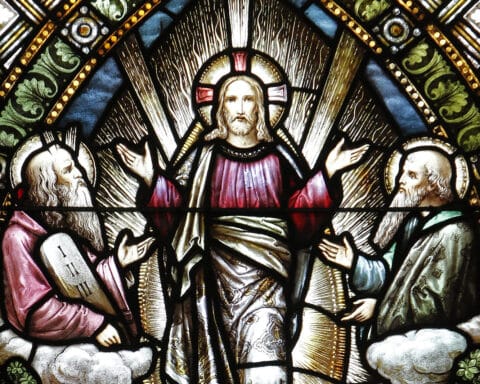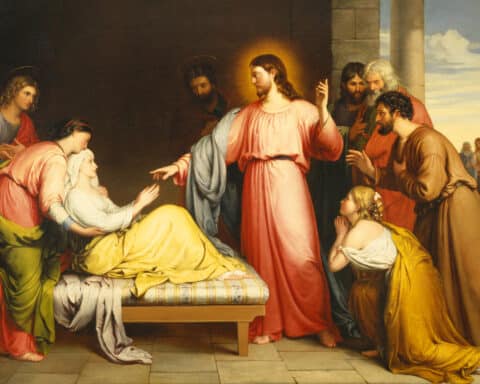
It’s been almost six months since we’ve been going to Eucharistic adoration every Saturday night from 10-11 p.m. We like to call it “date night.” Generally, we look forward to the time together after a busy week. As parents of six, we certainly look forward to the hour of silence.
Recently, however, my wife wasn’t feeling well, and so I went alone. Another couple is scheduled for the hour before us, and once they left, I knelt in the big, beautiful adoration chapel alone with the Blessed Sacrament, very much looking forward to having the hour all to myself. Looking at Christ in the monstrance, I prayed the Rosary and meditated on the milestones of his early life on earth that we find in the Joyful Mysteries.
After finishing the Rosary, I left my pew to read through the myriad prayer intentions that fellow adorers have anonymously written in a book that sits in the back of the chapel. Every week, the intentions are largely the same; only the handwriting changes. Occasionally, there are prayers of thanksgiving — someone’s son has found a job; someone’s illness has subsided; someone passed their test or their grandchild was born healthy. Most of the book, however, is filled with the sufferings of the Body of Christ, and these faithful Catholics have come to this perpetual adoration chapel carrying a heavy burden. They seek prayers for their sons and daughters who have left the Church; for the repose of the souls of their husbands and wives or, God forbid, children; for the gift of a miracle to cure their loved ones’ cancer; for job losses; for reunions with estranged family members; for a daughter struggling with addiction. I could go on. My heart weeps for each of them.
Back in my pew, midway through the hour, as I was reading through the First Book of Samuel, I heard the click of the outside security door behind me. Soon, a young woman in her late teens or early 20s walked to the front pew on the opposite side of the aisle and knelt on the hard tile floor. My knees ached just watching her. After a few minutes, she began to cry quietly, wiping away her tears with the back of her hand. Not knowing whether to ask if she was OK or simply allow her to weep in the presence of the Lord, I kept reading.
As she cried, I came to the story of David and Goliath. The giant Philistine soldier challenged the army of Israel to send forth one man to fight him. The stakes couldn’t have been higher, as whichever side lost would become servants of the winning nation. Seeing no one step up to fight for the People of God, David, a young shepherd, volunteers. Armed with just five stones and his sling, David has no fear, telling Goliath, “You come against me with sword and spear and scimitar, but I come against you in the name of the Lord of hosts, the God of the armies of Israel whom you have insulted. Today the Lord shall deliver you into my hand” (1 Sm 17:45-46). His first stone strikes the giant in the forehead, sending him crashing to the ground.
I was familiar with the story — as is most anyone who spent time at Vacation Bible School or was given a “My First Bible” as a kid — but I’d never read it carefully or, frankly, given it much thought. But that night in adoration, it stuck with me, and I realized that we fight our own Goliaths every day. The young woman crying before the Blessed Sacrament certainly was, and so were all of those who had poured their intentions onto the pages of the prayer book at the back of the chapel.
Armed only with our prayers, we sling them to heaven, knowing that with God on our side, we cannot lose. He will slay Goliath.
Scott Warden is managing editor of Our Sunday Visitor.





